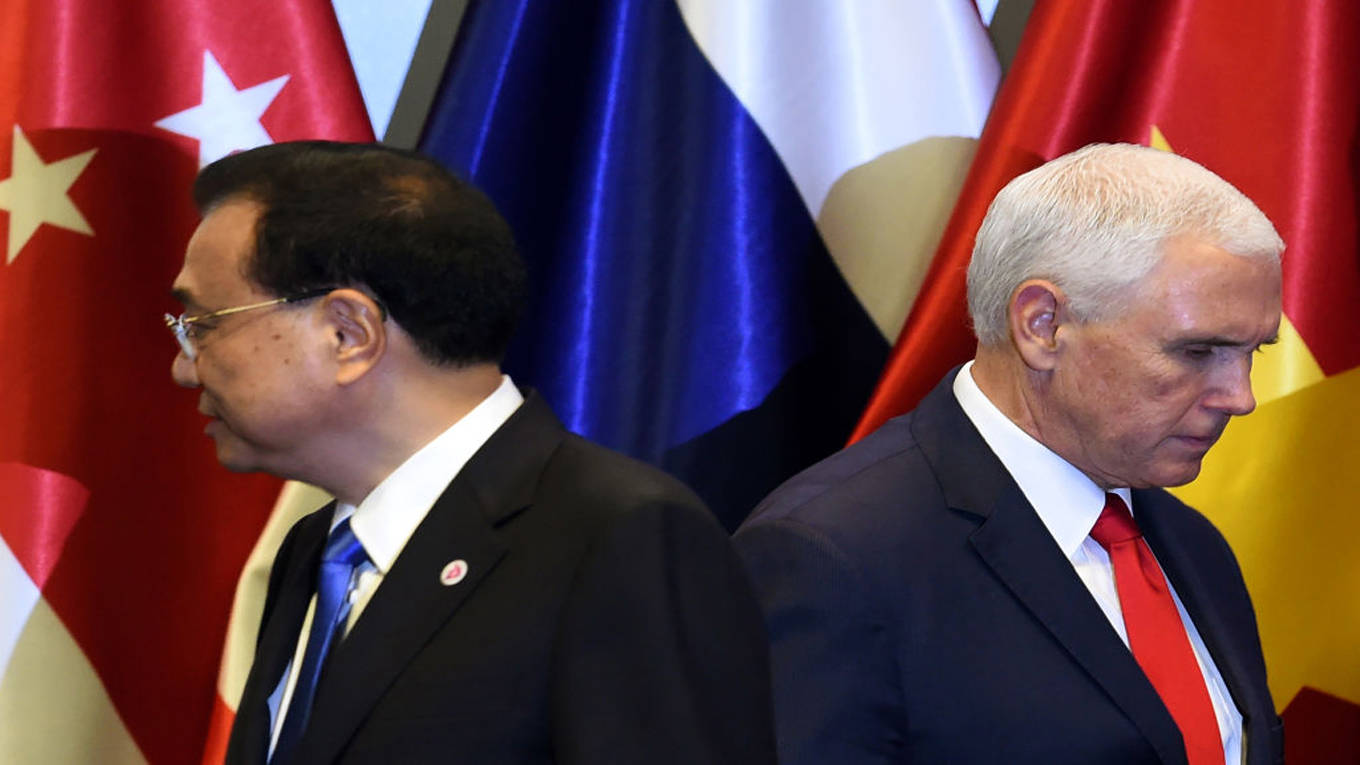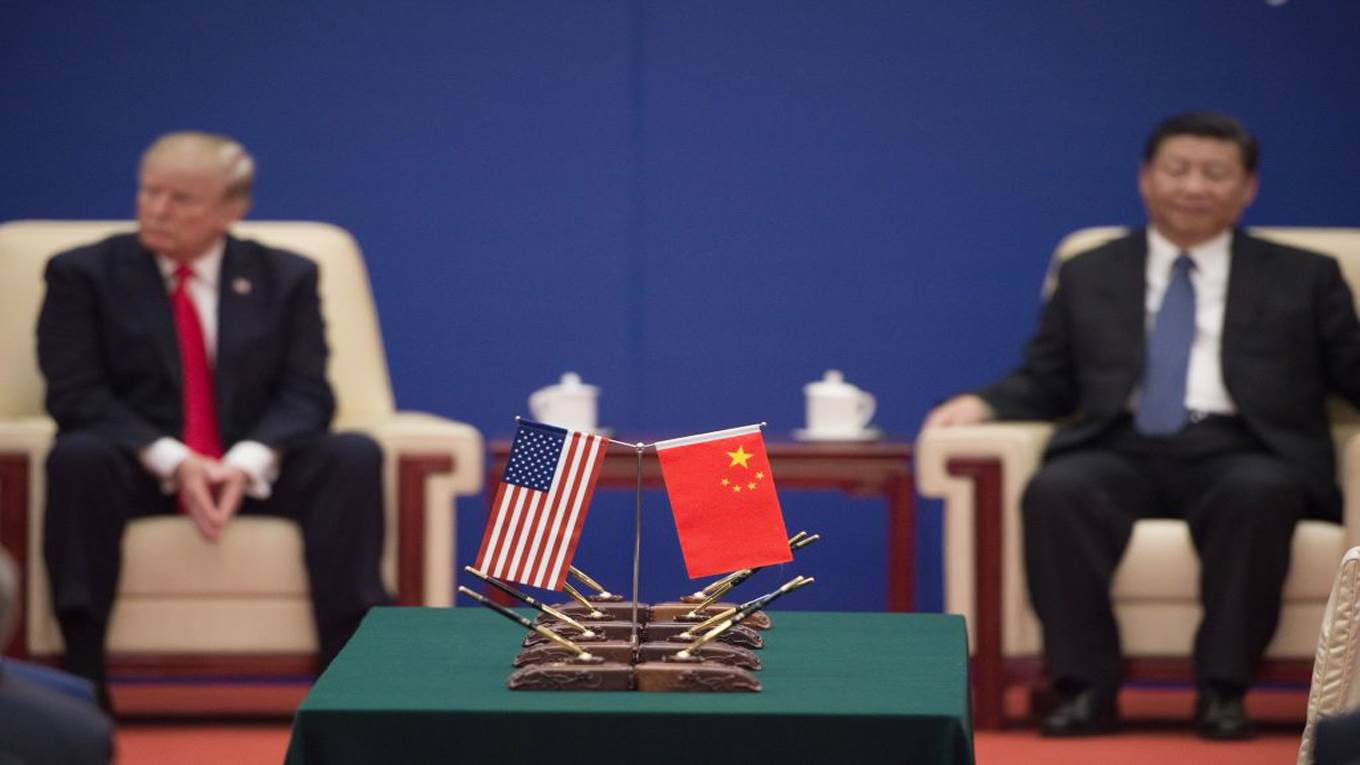CHRISTOPHER R. HILL
 Among the Trump administration's many foreign-policy blunders, its mismanagement of Sino-American relations will be remembered as the most consequential. At a time when Chinese trade practices and territorial ambitions must be addressed at the international level, the US is botching the job.
Among the Trump administration's many foreign-policy blunders, its mismanagement of Sino-American relations will be remembered as the most consequential. At a time when Chinese trade practices and territorial ambitions must be addressed at the international level, the US is botching the job.
DENVER – US President Donald Trump blew off two multilateral summits in Asia this month. Given his soggy and sulking performance that week in Paris, during the international commemoration of the centenary of the end of World War I, it was probably for the best that Vice President Mike Pence attended instead. Pence was able to spread the gospel of American unilateralism at a meeting of the Association of Southeast Asian Nations in Singapore, and again at the Asia-Pacific Economic Cooperation summit in Papua New Guinea.
 But regardless of who’s delivering the message, it is clear that America is losing its way. The Trump administration’s “America First” foreign policy has yielded little fruit and left the United States isolated and increasingly discredited on the world stage. The international initiatives of past administrations have been replaced by empty slogans, hollow gestures, and, of course, “alternative facts.” With Trump scheduled to meet Chinese President Xi Jinping at the G20 summit in Argentina this week, the US may have one last chance to turn things around.
But regardless of who’s delivering the message, it is clear that America is losing its way. The Trump administration’s “America First” foreign policy has yielded little fruit and left the United States isolated and increasingly discredited on the world stage. The international initiatives of past administrations have been replaced by empty slogans, hollow gestures, and, of course, “alternative facts.” With Trump scheduled to meet Chinese President Xi Jinping at the G20 summit in Argentina this week, the US may have one last chance to turn things around.
When future generations of historians sift through the wreckage left behind by the Trump administration, they will probably pay special attention to the breakdown of longstanding US policy toward China. For decades, successive US presidents have understood that the careful management of the bilateral relationship with China is vital to America’s national interests.
To be sure, given the daily fare of buffoonery on display at the White House, it would be easy to place all of the blame for the downward spiral in Sino-American relations on Trump. But China, too, is responsible for the current state of affairs. For starters, while economists are correct to point out that bilateral trade deficits cannot be considered in isolation, the fact remains that China’s surplus with the US – which hit a new record in September – is politically unsustainable.
For many American workers, China has become a symbol of job loss and economic insecurity. Although automation accounts for more of the decline in US manufacturing employment than does trade, China has developed a reputation as an economic predator. And after years of forcing US companies operating in China to transfer key technologies and intellectual property to Chinese firms, that reputation will be hard to shed.
Moreover, China’s expanding military has become a source of bipartisan concern in US national-security circles, even though its defense spending is still but a fraction of America’s (a point often lost amid all the hand-wringing). Since having its territorial claims in the South China Sea struck down by a Hague-based Permanent Court of Arbitration in 2016, China has continued to threaten smaller regional players’ maritime access there. As a result, the US Navy has had to launch new missions to demonstrate its right to navigate the waters demarcated by China’s “nine-dash line.”
China’s domestic policies also seem to be taking the country down a darker road. The treatment of Uighur Muslims, for example, has invited international obloquy. It is up to the Chinese government to decide how to address the country’s political challenges. But if the Chinese find that their every move is being met with suspicion, they can hardly blame an international conspiracy. China’s own actions are emboldening its foes and exhausting its friends.
That said, none of China’s recent actions justify Trump’s sudden upending of Sino-American relations. The administration’s China policy is as reckless as it is feckless. China is home to over 1.3 billion people and a major contributor to the global economy. Regardless of what the US government says or does, Chinese power is not going away.
Earlier this month, Trump announced that China “wants to make a deal” to bring the ongoing trade dispute to a close. No doubt it does. But Trump always trots out this line before holding talks with foreign leaders. Far from auguring a successful resolution, it signals merely that he will bring his usual impetuousness and carelessness to the negotiation with Xi.
Yes, China absolutely does need to change the path that it is on, particularly with respect to its trade and market-access policies. But as the Trump administration’s renegotiation of the North American Free Trade Agreement and the US-Korea Free Trade Agreement showed, it is likely to emphasize cosmetic issues that yield catchy sound-bites, at the expense of the substantive action that the problems in the Sino-American relationship demand.
For example, the Trump administration has not brought an effective case against China to the World Trade Organization, nor has it marshaled the support of European allies who share its concerns about China’s behavior. More broadly, the administration has proved utterly incapable of formulating a coherent policy, let alone an effective one. Whereas good policymaking is about setting priorities, Trump’s policymaking is about wanting it all, wanting it now, and gaining very little.
If fixing the bilateral trade relationship is too hard at this juncture, perhaps Trump should pursue cooperation with China in some other area. After all, we haven’t heard much from the North Koreans in a while.
No comments:
Post a Comment